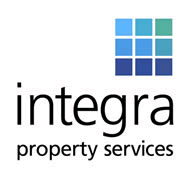On 17 July 2025, HM Treasury published its official response to the consultation on improving the effectiveness of the UK’s Money Laundering Regulations (MLRs). This is the most substantial set of proposed AML reforms since the UK’s departure from the EU, and although the changes have yet to be formally implemented, the direction of travel is clear.
The government’s intention is to make Money Laundering Regulations more targeted, proportionate, and risk-based, reducing administrative burdens where appropriate, while focusing on higher-risk areas. For estate agents and letting agents, there are a number of important implications that should be understood and planned for ahead of formal legislative updates and revised sector guidance. It is important to note, with all these proposed changes, that formal clarification is still to come.
When a business relationship begins
One of the developments is the proposed clarification around when a business relationship begins. This has long been a grey area for letting agents in particular, with differing views on whether Customer Due Diligence (CDD) must be completed before accepting a holding deposit, issuing a memorandum of let, or executing a tenancy agreement. These upcoming changes should make it easier for firms to align compliance requirements with operational realities, and to ensure that CDD checks are completed at the correct point in the transaction, without unnecessarily delaying progress.
Thresholds to move from Euros to Pounds
Another area of change will be that the thresholds currently expressed in euros will move to pounds sterling. This will simplify matters for UK businesses who, at least in theory, had to monitor exchange rate fluctuations and convert values to determine whether a threshold had been triggered.
Changes to EDD requirements
Enhanced Due Diligence (EDD) requirements are also being recalibrated. EDD will only be mandated for transactions involving jurisdictions on the Financial Action Task Force (FATF) “Call for Action” list (also known as the Black List), in other words, countries subject to the highest levels of international AML concern. This is a welcome refinement. The previous blanket requirement to apply EDD to all “Grey List” countries has now been removed, and firms are expected instead to adopt a proportionate, risk-based approach when dealing with such jurisdictions. It is important therefore to ensure that staff understand the difference between FATF Black list and grey list countries, and that risk assessments company and individual reflect the revised expectations.
Of note too is the government’s plan to issue clearer guidance on what constitutes an “unusually complex transaction”. This is another trigger for mandatory EDD and is a term that has caused uncertainty. Property professionals should expect a focus on structures or arrangements that conceal beneficial ownership, involve multiple layers of entities, or obscure the true source of funds.
Guidance on Source of Funds Checks
Alongside this, HM Treasury has committed to providing practical guidance on when and how to undertake source of funds checks during ongoing monitoring, particularly relevant in longer-term relationships or transactions that evolve over time. While this may have less impact on single residential sales, it is especially relevant for letting agents with long-standing landlord clients or those managing large portfolios.
Digital ID Verification
A potentially transformative development is the government’s endorsement of digital ID verification. A new framework, supported by formal guidance, will set out the standards and assurance levels expected of digital ID tools used to meet AML requirements. For estate and letting agents, this presents an opportunity to improve both compliance and client experience by integrating verified, secure digital ID solutions into onboarding processes, but only where those solutions meet the government’s forthcoming criteria. Firms should begin reviewing their existing providers and considering whether changes or upgrades may be needed.
Lettings – pooled client accounts
New requirements for pooled client accounts will be included within the Money Laundering Regulations, allowing financial institutions to offer them under a wider set of circumstances than currently permitted under the simplified due diligence rules.
Revised Supervisory Guidance in Due Course
Finally, all of these regulatory updates will need to be reflected in revised guidance from supervisory bodies. For most property firms, this means keeping a close eye on updates from HMRC, which is expected to publish refreshed Estate Agency and Letting Agency Guidance in the coming months. Once that happens, businesses will need to revise their AML policies and procedures, firm-wide risk assessments, training materials, and client-facing documentation to ensure consistency.
While the legislative timetable is still to be confirmed, the government has indicated that implementing legislation and sector guidance updates will follow shortly.
For now, I would advise firms to review their current practices against the proposed direction of reform, and to begin preparing for updates, particularly in relation to risk assessment processes, digital ID integration, and staff training.
Key Points
- CDD Timing: Expect clear rules on when the business relationship begins, especially useful for letting agents managing pre-tenancy stages.
- EDD Focus: EDD will only be mandatory for FATF “black list” countries or unusually complex transactions. “grey list” countries no longer trigger EDD automatically.
- Source of Funds: Additional guidance is expected on when to revisit source of funds checks during ongoing client relationships.
- Currency Thresholds: Existing euro-denominated thresholds will be converted to pounds, simplifying interpretation.
- Digital ID Verification: New government-backed standards will provide greater clarity and assurance for using digital identity tools.
- Supervisory Guidance: HMRC will update sector-specific guidance, this will require firms to review and revise internal AML documentation and training accordingly.
Increased Cost of Supervision
HMRC are also currently proposing to raise the fees charged to agents and are consulting (you can have your say) with the industry – you can read the full proposals here
Key proposals are:
- the premises fee will rise from £300 to £400, reflecting increased operational costs. I estimate this would raise additional fees in excess of £1.5bn! Additional revenues that are likely to see even more emphasis on enforcement.
- the fit and proper test fee will increase from £150 to £700, a move intended to place greater financial responsibility on non-compliant entities rather than compliant businesses.
- a one-off application fee of £400 will be introduced.
- the approvals fee will remain unchanged at £40.
- the penalty administration charge is being restructured into a sanctions charge, potentially increasing up to £2,000. It is currently up to £1500.
Ultimately you will have no alternative but to pay any increases in supervisory fees but it does demonstrate the importance being placed on Anti Money Laundering compliance.
Currently around 50% of fines are levied on agents who have failed to register or re-register annually for supervision.
It is a requirement of all businesses to have in place the required procedures (documented) and train their staff.
We have already seen greater requirements introduced in the lettings sector this year with mandatory sanctions checks on all landlords and tenants.
The best agents in the industry have integrated their money laundering compliance seamlessly into their day-to-day activities and, along with other compliance, are using to enable their business rather than restrain them. All compliance presents both a threat and an opportunity. They are two sides of the same coin. Whatever your views, you have to comply in order to trade legally so, IMO, you are better off embracing rather than grudgingly carrying out a cursory approach.
I have a number of compliance training courses booking now for September and beyond.
September
11th Estate agency legislation course
17th Money Laundering Regulations and how to comply course
17th Consumer protection, material information, Digital Markets, Competition and Consumers Act and how to comply
17th GDPR and how to comply
Full details of all courses can be found on this website and booked here






